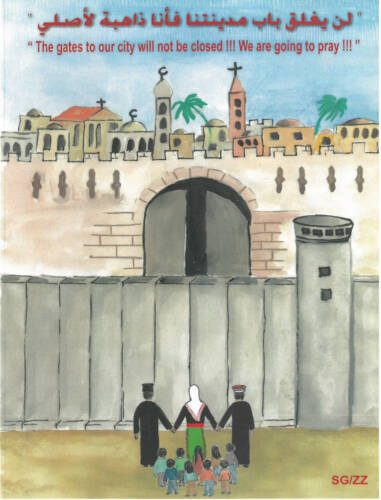SDOP’s coordinator, the Rev. Dr. Alonzo Johnson, is a recent guest on ‘Between 2 Pulpits’
May 16, 2024

The Rev. Dr. Alonzo Johnson (Photo by Rich Copley)
Near the end of his time on a recent “Between 2 Pulpits” podcast with the Rev. Dr. John Wilkinson and Katie Snyder, the Rev. Dr. Alonzo Johnson waxed visionary when asked about his hope for the church.
“My hope for the church is that it finds its identity in losing some of the vestiges of its old one,” the coordinator of the Presbyterian Committee on the Self-Development of People said. “Once again, people will look at churches and know they are places of possibility and hope, places of education and community, advocacy and transformation.”
“I feel this is God’s community organizing,” Johnson said of the church. “I think of our church as magnanimous in the use of its power but generous in its buildings, its people, its relationships, its money and its commitment to bringing about transformation, especially for those who are disenfranchised, who suffer, who know trauma, who are ignored and exploited … and for those who thirst for substantive change to happen in our world, our cities and our neighborhoods.”

The Rev. Dr. John Wilkinson
“I hope the church will find itself and figure out once again who it is even amidst all these changes as they understand God is doing something new and powerful,” Johnson said. “I just want to be part of that, because I have a lot of hope for the church. I’m here because of the church, because someone in the church cared enough to mentor me, to walk with me, to tell me education is important and to care about my family and community. I just hope the church will once again see itself as a beacon of hope.” Listen to Johnson’s 37-minute conversation with Wilkinson, director of Ministry Engagement and Support, and Snyder, MES’ project manager for digital fundraising and interpretation, here.
“SDOP is about justice. It’s about walking alongside our community partners,” Johnson said. People who serve on the national SDOP committee as well as members of committees in dozens of presbyteries “listen to what our community partners are saying so the church can learn more about engaging these issues of poverty,” Johnson said.
 As one who grew up in poverty, “I’ve always been interested in the intersection between the church and the economically disenfranchised,” Johnson said. “I was a church kid, and I’ve asked questions all my life about what does the church have to say about poverty?”
As one who grew up in poverty, “I’ve always been interested in the intersection between the church and the economically disenfranchised,” Johnson said. “I was a church kid, and I’ve asked questions all my life about what does the church have to say about poverty?”
He remembers seeing the SDOP logo and thinking, what is that all about? “It was an intriguing kind of logo,” he said, one that features flying figures representing people of different colors. “I thought, this ministry is really relevant to doing anti-poverty work.”

Katie Snyder
“There are a lot of Matthew 25 churches out there who definitely have a heart for what you’re talking about,” Snyder told Johnson. “People get trapped in these cycles, which is why we talk about poverty being a systemic thing.” Snyder asked Johnson to talk about “partners doing work you’re excited about.”
One is the Gullah Farmers Cooperative Association, more than a dozen Black farming operations in the Low Country of South Carolina. Another is the Alliance for Community Services in Chicago, which Johnson said was formed about 10 years ago to “address issues disabled folks face. They do frontline services and advocate for people to stay in their homes.”
Formed by presbyteries, local SDOP committees “are really hands-on and engaged,” Johnson said. At one event hosted by the Presbytery of the James, Johnson and his SDOP colleague, Margaret Mwale, met representatives “of a few organizations that we funded” and participated in community-building and community relationship-building events. Johnson called that kind of experience “one of the most powerful pieces of what we do, when Presbyterians get an opportunity to meet and walk alongside communities and create relationships, which is not always the easiest thing. I think SDOP is a really good conduit for this.”
Mike Ferguson, Editor, Presbyterian News Service
Today’s Focus: Rev. Dr. Alonzo Johnson, guest on ‘Between 2 Pulpits’ podcast
Let us join in prayer for:
PC(USA) Agencies’ Staff
Courtney Hemmelgarn, Senior Administrative Assistant, Office of the General Assembly
Jean Hemphill, Legal Counsel, Board of Pensions
Let us pray
O God, you made all things through your Word. We thank you for creating us in your image. May we remain faithful to your creation, seeking to discern and to do your will, with love and patience, in pursuit of love and justice. Amen.


 Stories are stronger than their devious scheme: “I will tell you something about stories,” Leslie Marmon Silko once said. “They are not just entertainment. Do not be fooled. They are all we have, you see, all we have fight off illness and death. You do not have anything if you do not have stories. Their evil is mighty, but it cannot stand up to our stories. So, they try to destroy the stories. Let the stories be confused or forgotten. They would like that. They would be happy. Because we would be defenseless then.”
Stories are stronger than their devious scheme: “I will tell you something about stories,” Leslie Marmon Silko once said. “They are not just entertainment. Do not be fooled. They are all we have, you see, all we have fight off illness and death. You do not have anything if you do not have stories. Their evil is mighty, but it cannot stand up to our stories. So, they try to destroy the stories. Let the stories be confused or forgotten. They would like that. They would be happy. Because we would be defenseless then.”









